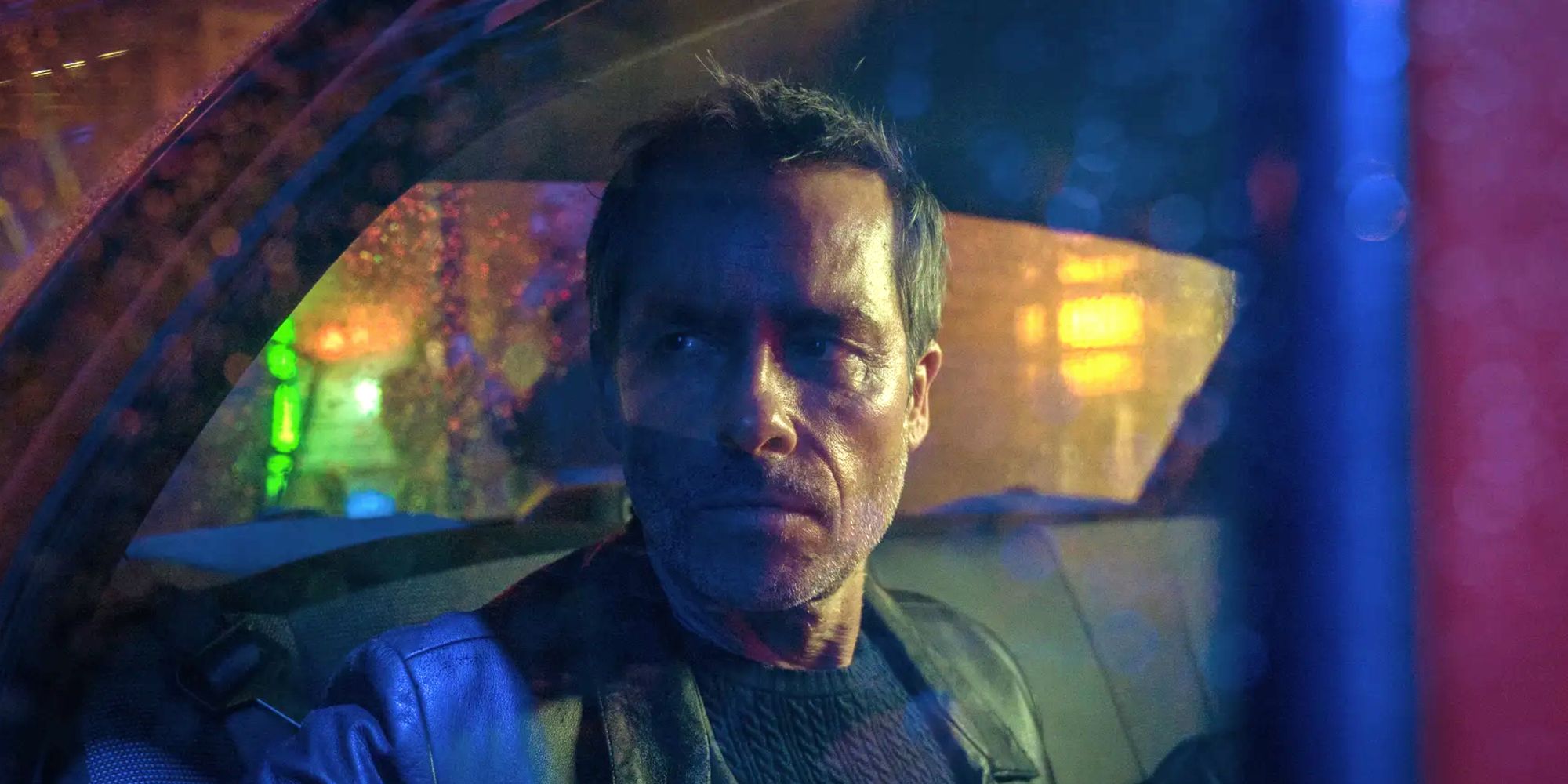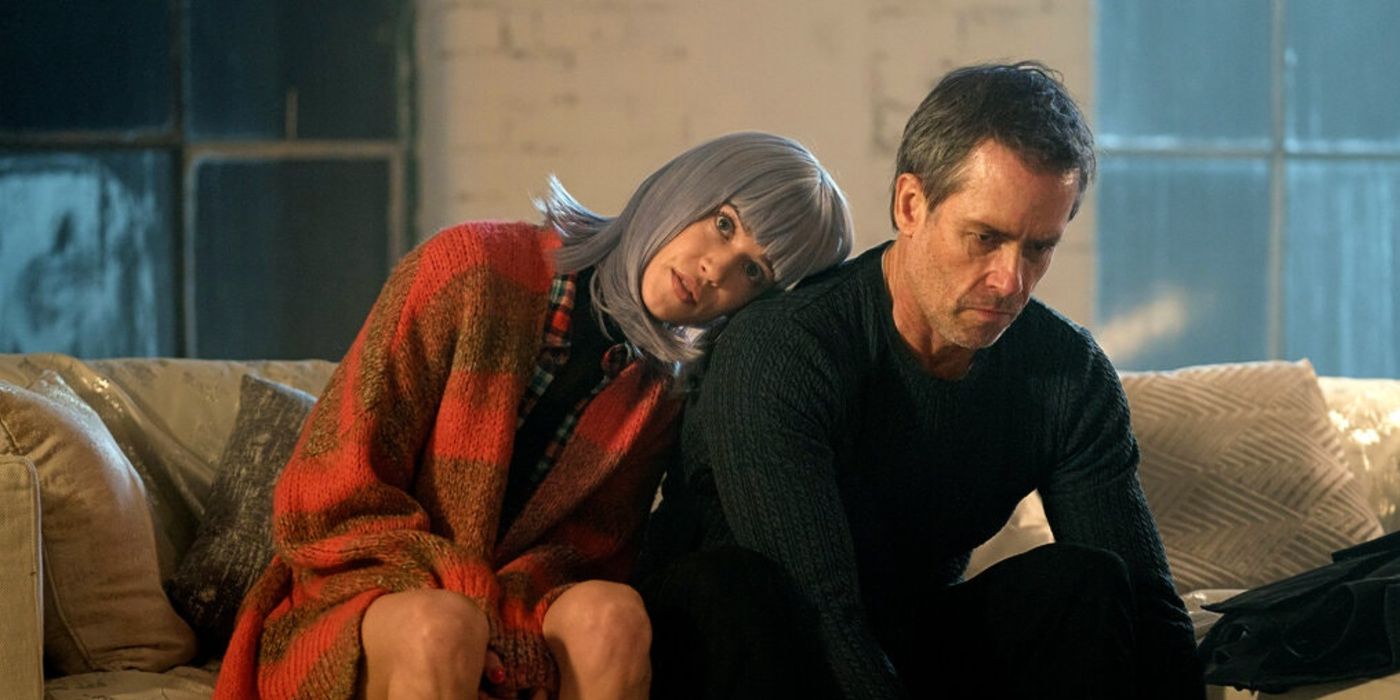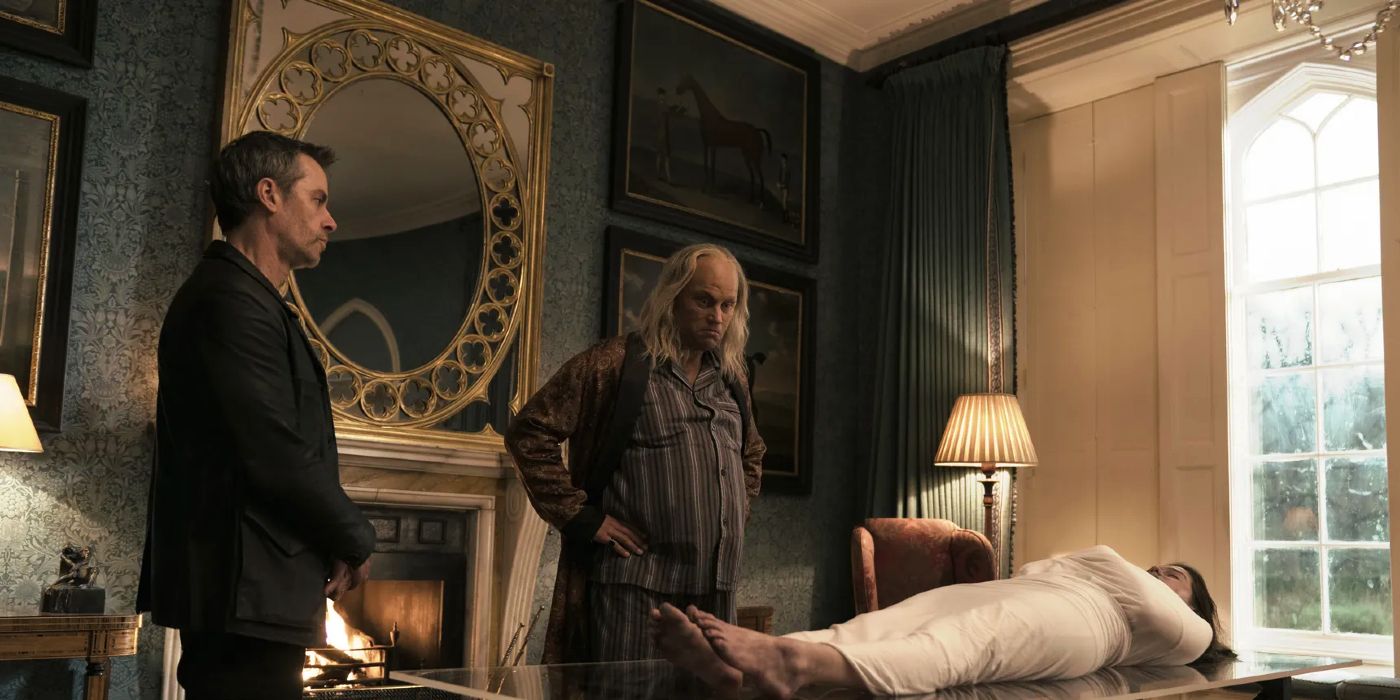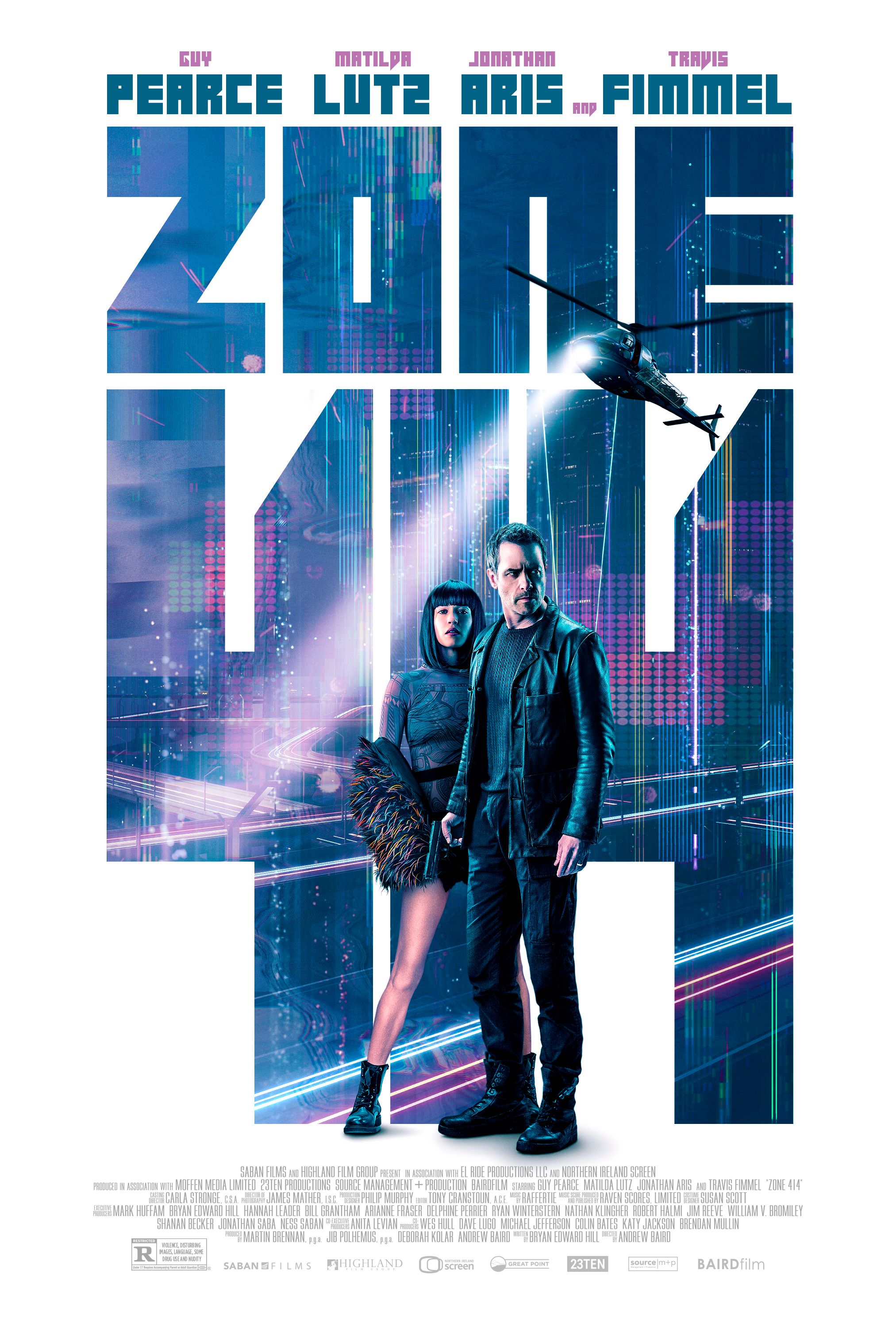The cultural influence of Ridley Scott’s Blade Runner is, indeed, undeniable in the realm of dystopian sci-fi, as it inspired the very fabric of narratives rooted in human versus machine relationships, and A.I. discourse in film in general. Denis Villeneuve’s Blade Runner 2049 also managed to cast a long-lasting legacy, imbuing the saga with stunning visuals and a tale centered on core identity, loss, and loneliness. Andrew Baird’s directorial debut, Zone 414, blatantly lifts from the Blade Runner universe to the point that inspiration bleeds into thoughtless mimicry, with the characters emerging as mere shadows of the esteemed original. Offering no individuality of its own, Zone 414 barely manages to stay afloat with its oft-repeated tropes, which come to a listless, foreseeable end.
Zone 414 opens with an overview of a dystopian world heavily reliant on technology, albeit not visually interesting enough to enrich its already barebones worldbuilding. The audience is offered a glimpse at the towering monolith of Veidt Corporation, which is an obvious stand-in for Tyrell Corporation, both responsible for the mass production of androids. Enter David Carmichael (Guy Pearce), a detective with a murky past who is now a P.I., who has a detached, impassive attitude while carrying out a hit on an unnamed woman. Swiftly taking her out with a bullet to her head despite her agonized pleas, Carmichael swiftly peels back her scalp to retrieve a mechanical core, indicating that his target had been a machine all along.
Questions about ethical relativism and of what makes one human aside, Zone 414 fails to delve deeper into the nuances of its own narrative threads, refusing to add its own distinct elements to a wholly borrowed narrative. Carmichael is interviewed by the creepily eccentric Joseph Veidt (Jonathan Aris), who seems to exist in his brother, Marlon Veidt’s (Travis Fimmel) shadow, as the latter dons the role of genius inventor who birthed synthetics into existence. The job entails finding Marlon’s daughter, Melissa (Holly Demaine) in Zone 414, a seedy, enclosed city inhabited by synthetics, the only legal site where humans and androids are allowed to mingle.
Carmichael is also alerted of Marlon’s greatest creation, Jane (Matilda Lutz), who is posited as somewhat of an anomaly due to her actually feeling human emotions instead of mimicking them. The interiors of Zone 414 are a vaguely familiar sight - women in colorful wigs and outfits inspired by the cyberpunk movement, neon-lit streets that are always rain-drenched, and personality-ridden apartment lofts flooded intermittently with flashing lights. While Carmichael is nowhere as complex as Rick Deckard, his actions after his encounter with Jane play out like an uninspired imitation of Deckard’s interactions with Rachael, minus the emotional and ethical tussle that enriches the Blade Runner narratives.
Interestingly, Zone 414’s core focus is violence against women, both human and synthetic, an aspect actualized with offhanded carelessness and unnecessary sequences of abuse and subjugation that serve no real purpose. Then there’s Jane, who is supposed to act as the emotional fulcrum of the film, mimicking the role of Marcus in Detroit: Become Human - a machine who feels enough to override its programming and shine bright like a forest fire. However, there is something truly inauthentic about Jane’s presence, despite Lutz’s best attempts to bring the role to life.
On the other hand, Pearce does well as the emotionally hounded Detective Carmichael, although the burdens of his past entail a telltale saga of guilt, deaths, and the need to live with the past. Zone 414 has too many similarities to its predecessors, right up to Marlon’s god complex stemming from his ability to create life, the presence of nude, synthetic bodies wrapped in plastic, and the systematic abuse of androids.
Zone 414 was released in U.S. theatres on September 3, 2021, courtesy of Saban Films. The film is 98 minutes long and rated R for violence, disturbing images, language, some drug use, and nudity.




